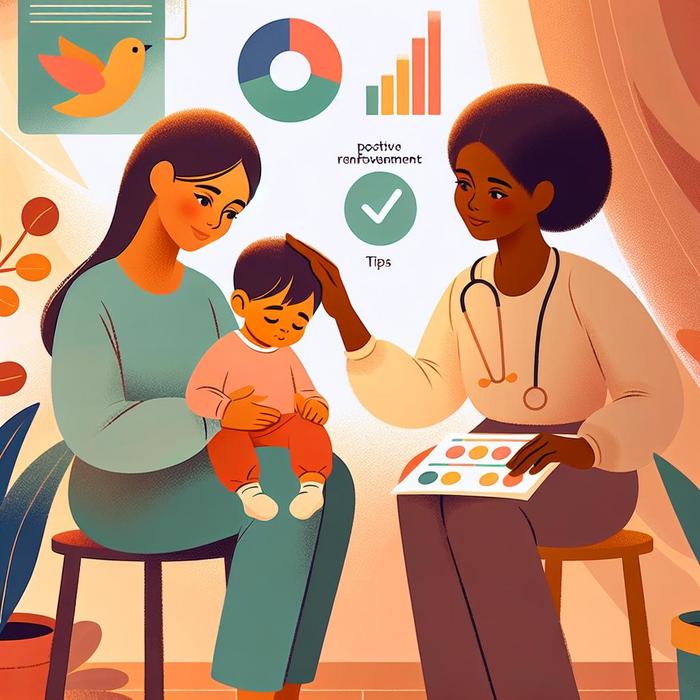Understanding Separation Anxiety in Toddlers
From an early age, children begin to understand and navigate their world, building significant bonds with their parents or caregivers. When faced with a separation, whether for a short period or longer, many toddlers may experience separation anxiety. It’s a completely normal part of their development, but it can often feel overwhelming for both the toddler and the parent. So, let’s delve into understanding separation anxiety and discover some valuable tips for managing it.
Identifying Separation Anxiety
Separation anxiety symptoms can vary greatly among toddlers. Some may cry incessantly, while others might throw tantrums or cling to their caregivers. Besides, some children might show signs of fear or worry when faced with the prospect of saying goodbye. Recognizing these signs early can help you implement strategies to alleviate their anxious feelings and reassure your child.
For more in-depth knowledge about separation anxiety in toddlers, check out the resources provided by HealthyChildren.org and Boston Children’s Hospital.
Tackling Separation Anxiety: Simple, Helpful Steps
While each child is unique and what works for one might not work for another, there are several universally recommended separation anxiety tips to help your toddler cope:
- Create a Goodbye Ritual: A consistent and positive routine can help your toddler understand you’ll return. It could be a special handshake, a hug, or a fun phrase. This positive reinforcement sends a comforting message to your toddler that everything will be okay.
- Practice Separation: Gradually increase the amount of time you’re away, starting with small separations. This way, your child gets accustomed to your absence and learns they are safe even when you’re not there.
- Introduce a Comfort Item: A familiar object like a blanket, stuffed animal, or a favorite toy can provide great comfort to your child when you’re not around.
Additional Resources for Managing Separation Anxiety
Getting to grips with comforting your toddler during bouts of separation anxiety is no easy feat. However, several resources are available to aid your journey. The experts at WhatToExpect.com have compiled some excellent advice on managing these anxious feelings. The NHS also provides a comprehensive guide on handling separation anxiety.
Understanding the Cause of Your Toddler’s Separation Anxiety
Quantifying the exact cause behind your toddler’s separation anxiety can be quite challenging because each child’s emotional development and environmental conditions are unique. However, according to UNICEF, toddlers often experience separation anxiety due to a basic development milestone or significant changes in their routine. This includes situations like starting preschool, moving to a new house, or the arrival of a new sibling. Understanding the root cause can shed light on the issue and guide you towards possible solutions.
Can Separation Anxiety Affect Your Toddler’s Health?
It’s important to understand that while separation anxiety is a normal part of a child’s development, prolonged or severe separation anxiety may affect your child’s physical health and social interactions. Sleep disturbances, loss of appetite, and reluctance to engage in play or school activities are common signs that separation anxiety may be taking a toll on their health.
It’s crucial to consult a pediatrician or a mental health professional if you notice such symptoms. As laid out by Child Mind Institute, professional perspective can provide valuable insights into managing your child’s anxiety better.
Supporting Toddler’s Emotions During Separation
Being there for your child emotionally is vital when they are dealing with separation anxiety. Let your child express their fears without dismissing them, and reassure them of your constant love and support. A story about one of their favorite characters braving separation or a light-hearted conversation about how you also feel sad when you’re away can help them relate and feel understood.
Further Steps to Alleviate Separation Anxiety
- Building Independence: Encouraging your toddler to perform tasks independently can boost their confidence. Achievements as small as dressing up or tidying up their toys on their own can make a considerable difference in shaping their self-esteem.
- Familiarizing Them with the Separation Location: Whether it’s a new daycare or a preschool, gradual and pleasant exposure can help reduce your toddler’s anxiety. Arrange playdate, or visit the location a few times before leaving your toddler for extended periods.
- Rehearse Separation:Parents.com recommends enacting separation at home. It involves saying goodbye, leaving your child with another caregiver, and then returning after a short while.
- Avoid Prolonged Goodbyes: Long goodbyes can exacerbate your child’s anxious feelings. It’s better to keep goodbyes brief and upbeat.
Talking to Your Toddler About Separation Anxiety
Regular and reassuring talks with your toddler about their anxiety can be quite beneficial. Use simple words to convey that it’s okay to miss someone but remember that ‘goodbye’ means ‘see you soon’. Picture books dealing with the topic could also be useful aids.
Remember that managing your toddler’s separation anxiety is a process. It takes patience, love, and consistency, and with time your child will surely learn to cope better with separations. Further supporting information can be found on RaisingChildren.net.au.
